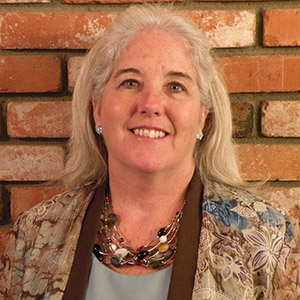 You teach Procurement in the Project Management program, what will a student learn in your class?
You teach Procurement in the Project Management program, what will a student learn in your class?
Students will take away more knowledge on critical research as well as planning and communication to ensure that a project progresses as smoothly as possible. And, to understand that there are very few projects that don’t have a glitch or two, but it is how they can overcome the bumps in the road to get the project back on track that is important. Teamwork is the key, with the goal of a successful project being gained through the strengths of the team members.
What makes you an expert to be able to teach Procurement?
I have been employed by the County of San Diego Purchasing and Contracting department for 25 years. Ten years of that time I was a buyer doing requests for bids (RFBs), and the last 12 years as a senior contracting officer with the County of San Diego working with requests for proposals (RFPs). I have also completed the SDSU College of Extended Studies Contract Management Certificate Program. My current position as contracting officer is very similar to a project management role, I work with program staff to take an idea and successfully navigate it through the planning, solicitation, evaluation, negotiation, and contract stages. I assist the programs in effectively communicating their solicitation and contract requirements to the public so that offers can respond in such a way to allow the County of San Diego to make a best value determination of which offer will provide services. During that whole process, both written and oral communication is key to the process to ensure all parties have a clear understanding of the requirements and what is being offered.
What are the highlights of your class?
The students do a real life hands-on procurement from start to finish and also get a taste of negotiations toward the end of the six-week class. Not only will students gain an understanding of the overall concepts of the procurement and negotiation process, but the group team exercise also allows them to apply the project management tools that they learned in the other certificate courses. The students get the big picture of how communication, teamwork, and project planning all intertwine once the project planning begins.
Why are effective procurement skills important in this industry?
If you cannot effectively communicate your needs, how can you expect to reach a satisfactory agreement in the time required and at an equitable price? As the buyer of any goods or services, you must be able to present your requirements in such a way that the seller understands your needs and can propose the product or service that best fits your requirements. If you cannot effectively explain to someone what you are trying to buy, then the chances that you will get what you need are greatly diminished.
What is the most interesting aspect of the profession?
I think there are two things that stand out for me in this profession. The first is people. The procurement concepts are basically the same whether you are doing a project for a government or the private sector, but working with the various individuals and personalities either on your team or with the seller allows you to gain an understanding into human nature and allows you to adjust your approaches and how you interact with them to maximize the purchase or exchange of ideas. The second thing is learning about each new product or service that you are involved in. In my profession, I get exposure to all types of services and programs that the County procures for both internal use by San Diego County and also for its residents. That glimpse into the various services or goods is exciting to me and keeps my job fresh as I get to work with different people and services on each new project.
What kind of person (personality, traits, etc.) is successful in procurement?
A person who is open to new ideas and concepts, who enjoys taking on new challenges and who has the ability to be flexible. Having the ability to multi-task also is a good personality trait for this profession, as you most likely may be involved in a number of project management projects at the same time, each in various stages in their progress.
Is there anything that I didn’t ask that you think is important about the industry, class, you, or the program?
With the economy as it has been in the last five years, as well as the changes in technology and networking, the way business is done is changing as we speak. Business used to be done based on face-to-face, long-term community relationships, yet look at today’s way we communicate. We buy and sell with organizations we may never see, sometimes inter-coastal across our nation or outside our country, so again, effective communication is key to bridge those gaps of geography and culture. It’s an exciting time to be in the business world.